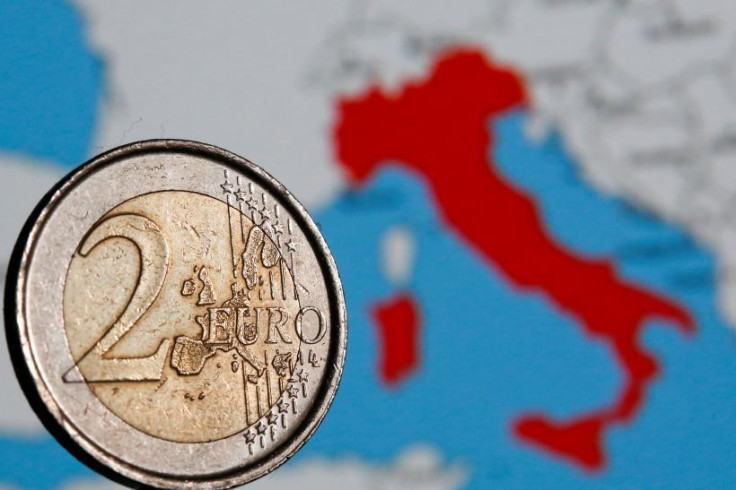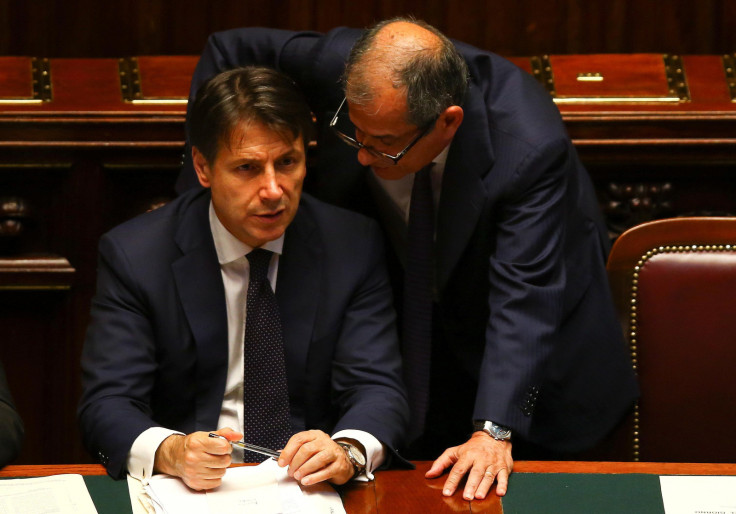Italexit? Leaving the EU would be a 'nightmare' for Italy, say analysts
Italy will not exit the European Union despite budget deficit worries, believe economists polled by International Business Times.

Italy will not exit the European Union, despite the pressure to increase public spending, as that would inflict huge economic pain on the country's population, economists say.
All the 15 economists polled by the International Business Times say the country's politicians will find it difficult to deal with the higher interest rates and a weaker Italian lira post exiting the bloc.
Italy's government will need to set the new public finance and economic growth targets by Sept. 27 and submit a draft for inspection by the European Commission by mid-October. The economists that IBT spoke to expect the political parties in the ruling coalition of Prime Minister Giuseppe Conte to agree to keep the budget deficit under 3 percent, complying with a EU rule for member states.
Conte leads a coalition of the right-wing League Party and the left-leaning Five Star Movement. Both parties have made populist promises that will require billions in additional spending and have urged Finance Minister Giovanni Tria to widen the gap to fund their programs.
Tria, who belongs to neither party, is determined to keep the line on a deficit-to-gross domestic product ratio at 1.6 percent for 2019.
Italy sits on a large pile of debt, which, at around 132 percent of GDP, makes it the second most indebted country in the euro zone after Greece. Italy's government debt increased to 2.34 trillion euros in July, from 2.32 trillion euros in June.
Marco Wagner, Italian Chief Economist at Commerzbank, says leaving the EU will result in substantially higher interest rates for both the Italian public and private sector. "All this comes on top of the typical issues if Italy would leave the EU: strong devaluation of a new lira resulting in substantial inflation and a significant loss in purchasing power of Italian citizens," he says. "No government would do this to its citizens."
taly will want to negotiate around the EU budget rules. But pull the pin? No, I don't believe that Italy's leaders or its citizens are close to taking the mutual destruction path.
Carsten Hesse, European economist at Berenberg, thinks even if the coalition parties have the stomach for the fallout from an , rallying a two-thirds majority in Parliament to approve the schism would be unlikely. "I know they're preparing for it as plan B discussions, but in theory you need like a two-thirds majority in the Parliament and this is difficult to get," he says, pointing out that a majority of the country's population - particularly the pensioners who would lose if they get paid in lira - is against an Italexit.
Two of the 15 economists say that the chances of Italexit are less than 10 percent. Nicola Nobile, chief Italian economist at Oxford Economics, forecast the odds at 2 percent, while Yung Yu-Ma, chief investment strategist at BMO Wealth Management, thinks that the probability is "likely below 10 percent and maybe even below 5 percent."
Yung says Italy's problems in the banking sector run deep and called the prospect of addressing those without EU backing a "nightmare scenario for Italy."
He added: "Expressing your anger and frustration is much different than facing a dark, unknown future. In the event of a referendum, I would expect the outcome to show even greater support for staying in the EU than the already sufficient support that current polling shows."
"We think Italy is going to muddle through over next few years because overall global growth is pretty strong," says Hesse. "The real trouble will come when the next global downturn starts happening. We're going to have a risk-off environment and then the one in the euro zone to look at will be Italy."
Economists think there will likely be a compromise within Italy and with the European Union. Yung says, "Italy will want to negotiate around the EU budget rules, and even do so with a finger inserted into the grenade pin. But pull the pin? No, I don't believe that Italy's leaders or its citizens are close to taking the mutual destruction path."
Most economists say that though the government signals a budget deficit of around 2 percent, the actual deficit may slip to around 3 percent.
"The official budgetary draft will show a forecast deficit figure of 2 percent of GDP while de facto it will come at around 3 percent of GDP," Wagner of Commerzbank says.

BOND MARKET VOLATILITY
Fears of an 'Italexit' have spooked Italy's equity and debt markets since May this year. On August 31, the spread between the Italian and German 10-year government bonds hit the widest since June 2013, rising to 291 basis points. The spread between the 10-year German bunds and 10-year Italian government bonds has widened to 244 basis points Monday.
Hesse expects volatility in the bond markets to continue, saying it will push the politicians to take some action. "It's actually a good thing when the bond markets react quickly and punish Italy because this forces the politicians to become real, otherwise they would do what they want," he says.
Danske Bank thinks that if the budget deficit ends up around 2 percent, there would be more room for the Italian government bonds to perform, especially in the 10-year segment. "Despite the recent rally, Italy still trades similar to BB-rated countries such as Croatia and Cyprus and more than 100 bps above Portugal in the 10-year segment," it said in a note seen by IBT. "We do not foresee rating downgrades and thus Italian government bonds look mispriced – also reflected in the pricing difference between high-coupon and low-coupon bonds."
Italy's 10-year government bond yields rose to 2.95 percent on Monday, from 2.84 percent in the previous trading session.
In August, rating agency Fitch downgraded Italy's outlook to negative from stable, and maintained its sovereign rating at BBB, citing risks of fiscal loosening that would leave Italy's very high level of public debt more exposed to potential shocks.
Massimo Bassetti, economist at Focus Economics, says, "The complicated budget negotiations and escalating concerns over the sustainability of the government debt will likely continue to spark volatility in financial markets and weigh on investment until there is clarity on the country's future economic policy."
© Copyright IBTimes 2024. All rights reserved.








